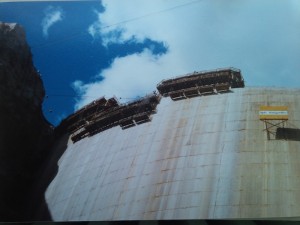Yesterday there was forum on renewable energy in Nairobi. It was organized by the Embassy of France and the Kenya government to show executives from French energy companies opportunities to invest in renewables and other energy projects in Kenya and Africa. Aqylon, Engie, GreenYellow, Quadran, Sogea Satom, Total , UrbaSolar, Vegrent, and Vinci representatives were part of the group.
Excerpts
- Large silent corporations include Engie which produces 3 GW in Africa and Vinci which has EUR 800 million of revenue, and 14,000 staff in Africa.
- SUNREF from AFD/KAM provides tailored finance for green energy to Kenyan companies through Bank of Africa, CBA, Diamond Trust and Cooperative Bank. 11 companies have now been financed, and some that have got SUNREF green energy finance include KTDA, Meru dairy, Strathmore University, and Redland Roses.
- Kenya has 10 independe power producers (IPP’s) producing 650 MW (28%) of its electricity – shows how vibrant it is for investors.
- Regional electricity sharing in future: Kenya produces 2,200 MW, Ethiopia 4,284 MW (90% from hydro), Tanzania 1,583 MW (65% from thermal), and Uganda 900 MW (80% from hydro)
- GreenYellow works with factory, malls, hotels, to finance & build (heat/cold/solar/light) systems that reduce their energy costs by 30%
- UrbaSolar is working with Kenyatta University on a 100% self-consumption plant that will reduce electricity bills by 80% (20% is night).
- Total is constructing a 40 MW solar plant at Isiolo with Green Millenia, while Kenya’s rural electrification authority (REA) has got funding to do a 50 MW one near Garissa.
- KenGen which provides 80% of Kenya’s electricity, has tendered for an Olkaria 5 plant, and will build an industrial park there.
- There’s opportunity in Kenya off-grid & mini grid electricity, but there’s no legal framework for integrating with the national grid integration & projects sometimes face land acquisition or compensation delays.
- Solar has not picked up in Kenya, but with drop of photovoltaic prices, there’s lots of interest here now – Energy Permanent Secretary J. Njoroge told the companies.. He also said renewable energy is intermittent – it can only be used up to a certain % of Kenya’s electricity grid supply. Later there was mention of CSP solar plants which are more complex & expensive than traditional PV ones which but do give stable solar electricity.



